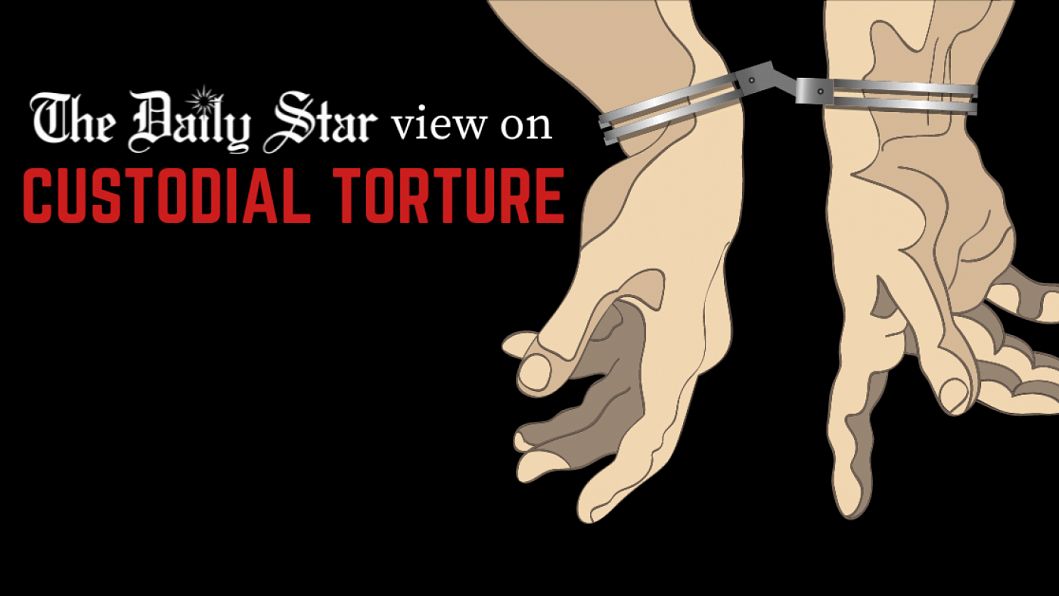The lawlessness of law enforcers

It is unfortunate that interrogation by law enforcement in the imagination of the public has become synonymous with torture and harassment. Can one really blame the public for this impression, given the regularity with which incidents of torture, including custodial deaths, take place in the country, the gruesome nature of the torture, and the culture of impunity enjoyed by law enforcers?
Only earlier this year, Wazir Mia – who died in police custody after being picked up on charges of stealing cows – was allegedly hung upside down from the ceiling and beaten mercilessly. Rabiul Islam, detained by the police on suspicion of being a gambler at a Baishakhi Mela, was reportedly beaten by five policemen till he fell to the ground and lost consciousness, leading to his death. If people can be treated so callously for mere suspicions of petty crimes, one shudders to think what happens when police take people to "remand" for serious crimes and get "confessions" out of them.
According to legal experts and human rights activists, investigations in the country rely heavily on extracting confessions from the accused rather than circumstantial evidence, and law enforcers often resort to physical violence and torture to extract confessional statements. What is most upsetting – and what fuels this unacceptable and unlawful practice – is the fact that law enforcers simply get away with it, even though Bangladesh enacted the Torture and Custodial Prevention Act in 2013 and the High Court Division of the Supreme Court laid down specific and detailed directions for law enforcement officers to ensure the arrestee's rights under the Constitution in 2016. Almost a decade since the law was enacted, only 24 cases have been tracked as having been filed for custodial deaths, and there has been judgment in only one case. Those who have filed cases report facing harassment and intimidation during the investigation and trial process, with the result that many simply stop pursuing the case at one point; yet others reported not being able – or having the courage or financial means – to file a case to begin with.
When this is the grim reality for cases involving custodial deaths, what remedy can victims, especially petty criminals from poor and marginalised communities, hope for when they are tortured by law enforcement? It would not be an overstatement to say: None.
It is clear at this point that no number of laws and High Court directives, and no international commitments under human rights mechanisms, are going to deter our law enforcement from resorting to torture of arrestees and suspects, unless there is political commitment at the top. The government's systematic failure to hold errant law enforcers accountable has ushered in an era of lawlessness among law enforcement, which is deteriorating public trust in these essential public institutions.

 For all latest news, follow The Daily Star's Google News channel.
For all latest news, follow The Daily Star's Google News channel. 








Comments